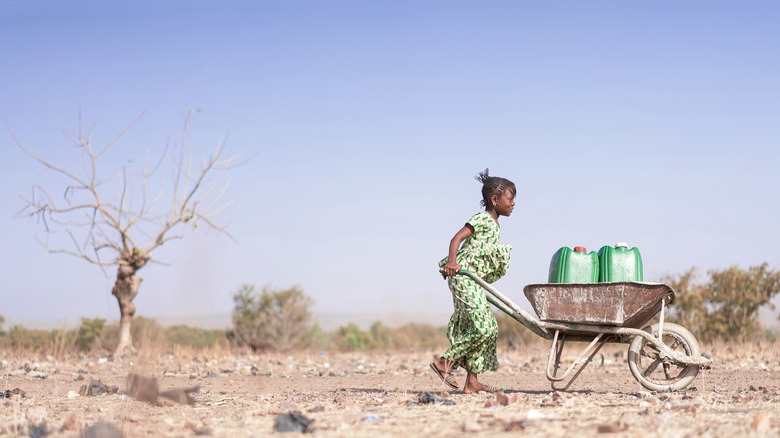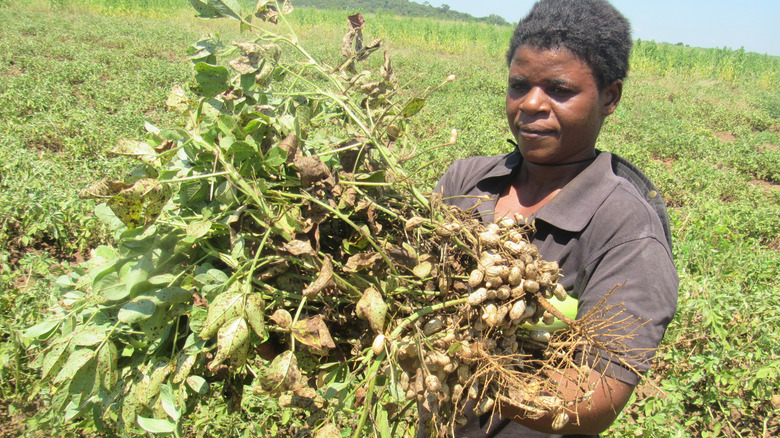How The UN's World Food Programme Will Aid Hunger In Zimbabwe
Hunger is no stranger to the people of Zimbabwe, who have been dealing with a lack of food for more than two decades; however, there is a glimmer of hope.
Millions of people living in the southern African country of Zimbabwe are affected by food insecurity and rely on assistance to be able to eat, according to UNICEF. There are many factors contributing to this condition, including drought and economic issues. The statistics shared by the United Nations' World Food Programme (WFP) highlight how dire the situation is for Zimbabwe. Of the 15.6 million people living in the country, 63% live below the poverty line, and 27% of its children have stunted growth. A report prepared by the European Union, FAO, OCHA, UNICEF, USAID, and WFP details how 4.3 million rural Zimbabweans need immediate help.
When it comes to growing crops to feed its people, rain-fed agricultural practices are widely used in Zimbabwe, meaning that a lack of rain greatly affects the residents' ability to support themselves, according to the UN. Lack of proper nutrition is also widespread as maize is the primary food source and doesn't offer enough nutrients. Reuters reports that a small harvest and the effects of the war in Ukraine have increased the country's problems recently. The United Nations, with its World Food Programme, are poised to help struggling Zimbabwe.
Relief to help 700,000 Zimbabweans
Through its World Food Programme, the United Nations will address the food needs of 700,000 Zimbabweans, according to Reuters. About half of the country's main crop, maize, is expected to fail because of a lack of rain during the recent growing season. Last year, Zimbabwe had a record maize crop weighing 2.72 million tonnes, but the country expects to only produce 1.56 million tonnes in 2022. This is far below what the country needs to feed its people and its livestock, per Reuters. The aid from the World Food Programme will come in the form of $40 million. These funds will be used to help the residents who run out of food before the next harvest starts in March.
WFP country representative Francesca Erldelmann told Reuters that she doesn't believe the food shortage in Zimbabwe has yet reached the level to be considered a famine. However, about 3.8 million people are food insecure in the country. With diminishing food supplies, Erldelmann said more Zimbabweans could feel the pain of hunger.

